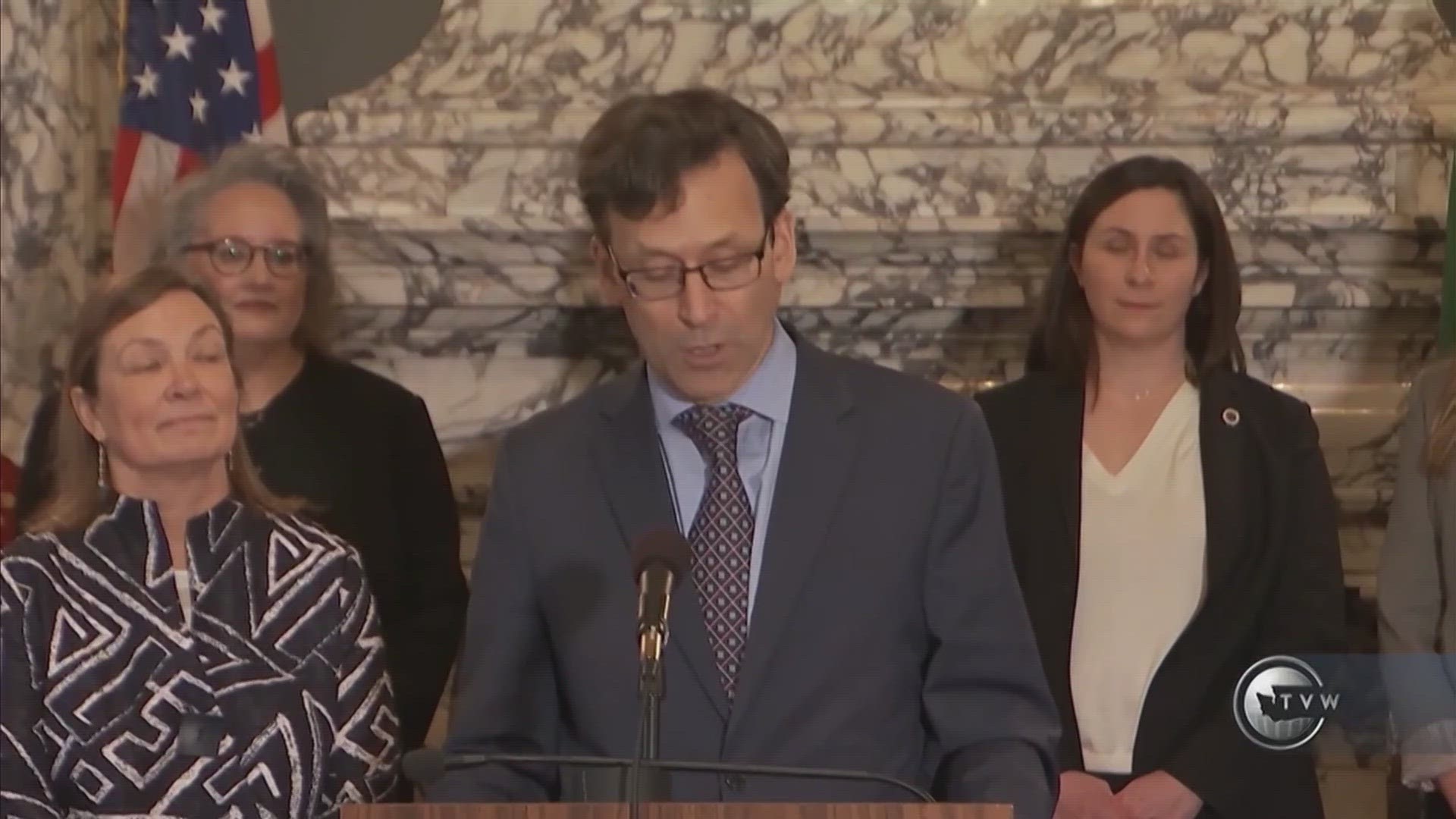SEATTLE — Johnson & Johnson agreed to pay Washington nearly $150 million for its role in the opioid epidemic, state Attorney General Bob Ferguson said on Wednesday.
Ferguson said the $149.5 million resolution filed in King County Superior Court on Wednesday will be paid in one lump sump this fiscal year.
The settlement requires that $123.3 million be used to fight the opioid epidemic in Washington state. Ferguson said he will use 50% of these resources for local governments.
According to the settlement, Johnson & Johnson is required to pay the entire $149.5 million within 21 days of the deal being ratified by Washington’s local governments, which must happen by May. The Attorney General’s Office believes the Legislature can appropriate the state’s share during the 2024 legislative session.
Ferguson rejected a settlement in 2021 that would have promised Washington $98.9 million and would have been paid out over nine years.
“We have an urgent need for resources to address the fentanyl crisis that is impacting communities in every corner of the state,” Ferguson said. “We are standing up to some of the largest corporations in the world that fueled the epidemic in pursuit of profit, and we are winning critical resources that must be used to address the harm. We have now recovered more more than $1.2 billion to improve treatment options, support first responders, and invest in other proven strategies to combat this crisis — and we’re not done.”
A release said Johnson & Johnson's aggressive marketing of opioids "systematically overstate the effectiveness of the drugs for treating pain long term and understated the risk of addiction." The company became the top U.S. supplier of the active pharmaceutical ingredients used to make opioid drugs in 2015.
Ferguson's office said Johnson & Johnson marketed its opioid drugs for chronic pain conditions like headaches, low back pain and fibromyalgia, despite evidence opioids were not effective at treating these conditions. The attorney general said Johnson & Johnson used branded marketing and non-branded sources to forward its narrative to use opioid drugs for chronic pain conditions.
Ferguson said he has pending litigation against multiple national pharmacy chains that also helped fuel the epidemic.

